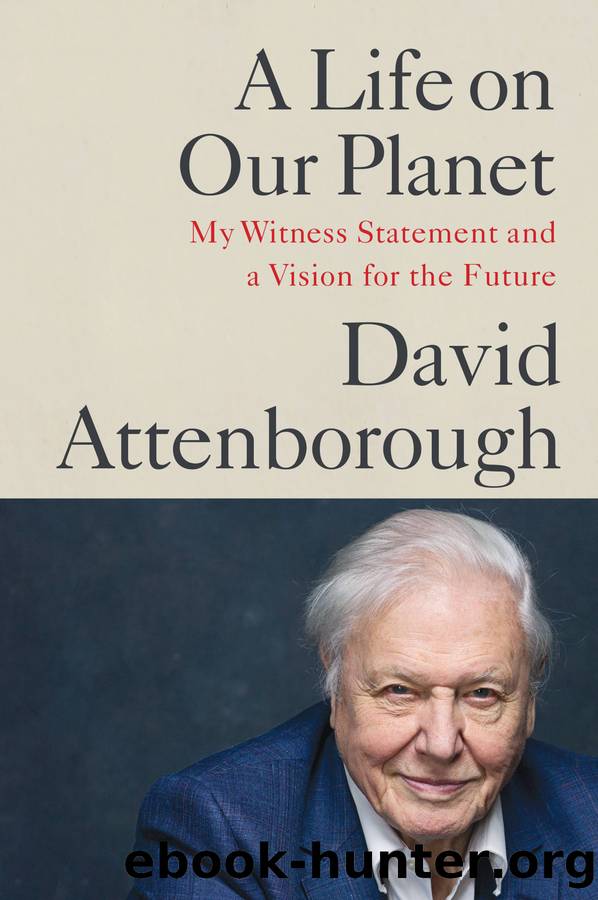A Life on Our Planet by Sir David Attenborough

Author:Sir David Attenborough [Attenborough, David]
Language: eng
Format: epub
Publisher: Grand Central Publishing
Published: 2020-10-06T00:00:00+00:00
This tradition now sits at the heart of the countryâs fishing policies. Their four-time president, Tommy Remengesau Jr., describes himself as a fisherman taking a leave of absence to serve in government. He has seen the population of his nation boom, the tourists start to arrive, and the commercial fishing fleets from Japan, the Philippines and Indonesia wander into Palauâs waters. When the demand on the ocean got too great, he did what any elder in Palau would doâhe closed down the fishing. Fishing was banned entirely on some reefs and limited to low-impact practices on others, while seasonal bans were created to enable threatened fish to breed in peace. But it was what Remengesau decided for the deep waters of Palau that was most impressive. He announced that Palau should not feel obliged to keep exporting fish. It should instead plan to take just what it needed for its people and its visitors to eatâin other words, return to subsistence fishing. He radically reduced the number of commercial licences available and turned four-fifths of Palauâs territorial waters, an area the size of France, into a no-fish zone. A small number of boats continue to catch just enough tuna in the remaining fifth for all the Palauans and their tourists. Remengesau is proud that, due to the spill-over effect, the Palauans are offering a gift of ever-renewing fish stocks to their neighbours.
There is now a huge opportunity for such wisdom to preside over two-thirds of the oceanâan area that constitutes half of Earthâs surface. International watersâthe high seasâare owned by no one. They are a shared space in which all states are free to fish as much as they wish. And that is the problem. A few nations have become committed to paying billions of dollars in subsidies to their fleets on the high seas. These subsidies keep the boats fishing, even when there are too few fish left for the work to be profitable. In effect, public money is being used to empty the open ocean. The worst offenders are China, the EU, the USA, South Korea and Japan, all nations that can afford to end this practice. And that is the hopeâas I write, the United Nations and the World Trade Organization are working on a new set of rules for the high seas.16 They are committed to bringing an end to harmful fishing subsidies and to delivering some respite to the overfished populations that reside in the deep waters of the world. But it is quite clear that we could go much further. If all international waters were designated a no-fish zone, we would transform the open ocean from a place exhausted by our relentless pursuit to a flourishing wilderness that would seed our coastal waters with more fish and help us all, through its diversity, in our efforts to capture carbon. The high seas would become the worldâs greatest wildlife reserve, and a place owned by no one would become a place cared for by everyone.
But
Download
This site does not store any files on its server. We only index and link to content provided by other sites. Please contact the content providers to delete copyright contents if any and email us, we'll remove relevant links or contents immediately.
The Lonely City by Olivia Laing(4799)
Animal Frequency by Melissa Alvarez(4466)
All Creatures Great and Small by James Herriot(4311)
Walking by Henry David Thoreau(3954)
Exit West by Mohsin Hamid(3824)
Origin Story: A Big History of Everything by David Christian(3689)
COSMOS by Carl Sagan(3618)
How to Read Water: Clues and Patterns from Puddles to the Sea (Natural Navigation) by Tristan Gooley(3466)
Hedgerow by John Wright(3356)
How to Read Nature by Tristan Gooley(3335)
The Inner Life of Animals by Peter Wohlleben(3313)
How to Do Nothing by Jenny Odell(3295)
Project Animal Farm: An Accidental Journey into the Secret World of Farming and the Truth About Our Food by Sonia Faruqi(3218)
Origin Story by David Christian(3195)
Water by Ian Miller(3180)
A Forest Journey by John Perlin(3069)
The Plant Messiah by Carlos Magdalena(2927)
A Wilder Time by William E. Glassley(2859)
Forests: A Very Short Introduction by Jaboury Ghazoul(2836)
